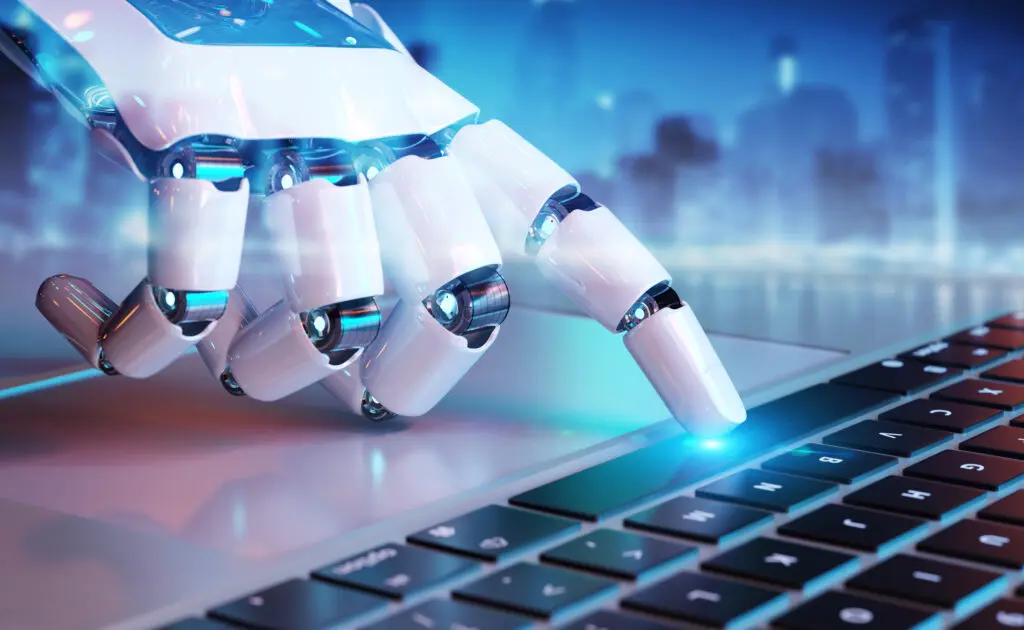The Robots Are Coming: The Rise of OpenAI and ChatGPT

The Robots Are Coming: The Rise of OpenAI and ChatGPT
According to the New York Times, Google became the World’s largest search engine in 2000 when it reached the point where it indexed over 1 billion web pages. Since then, Google has become a household word. We “Google it” to learn anything we need, want, or are just curious about.
The supremacy of Google has reigned for the last 20+ years in the search engine space. Interestingly, recent developments in artificial intelligence (AI) with the OpenAI and ChatGPT engine are causing many to question whether the rule of Google will end.
The interesting thing is that the rapid growth and intelligence we are seeing demonstrated by OpenAI has opened even more questions than whether it will eclipse Google. Some question whether it will eclipse human intelligence to the point where it replaces large chunks of human employment.
What exactly is OpenAI? OpenAI is a company that was formed by Elon Musk, Sam Altman (CEO), and some other heavy tech hitters in 2015. It has since moved from a non-profit to a for-profit enterprise. It has also had significant investments from Microsoft. Elon Musk has since stepped down and is no longer on the board or an owner stating a “conflict of interest” with his own AI efforts for self-driving Tesla cars.
OpenAI developed an AI engine that runs on the 4th largest supercomputer in the World. This engine is self-learning and continues to amass knowledge and change itself to improve its operation. ChatGPT, DALL·E, and Codex are all tools that allow people to interface with OpenAI.
ChatGPT is a conversation-based tool that allows you to interact with the AI engine and ask it questions. It has taken the World by storm because the AI engine responses are relevant and intelligent. Using ChatGPT is free, at least for now. You do have to sign up for an account. You can ask ChatGPT just about anything. Give it more detail, and ChaptGPT gives you more relevant and targeted answers. Common requests are to have it write a paper, help you with a marketing plan, or even develop some programming code. It can answer questions as seemingly simple as what to get your spouse for their birthday or as complex as how to resolve the threat of nuclear war.
While Google shows you websites that may help you address your question, ChatGPT directly answers the questions with relevant and detailed answers. And ChatGPT is part of an engine that learns over time. The more data it amasses, the more its answers develop and improve.
DALL·E is like ChatGPT, but it is image based. A friend of mine had his 7-year-old daughter play with DALL·E. She asked it to give her a picture of a duck eating a hamburger, and it did. It will generate and display virtually anything you ask it to create. You can tell it to generate a computer image, a photo, a drawing, and more. Because OpenAI is focused on the safe use of AI, it limits adult images and prevents the creation of derogatory images. For instance, it will not create a picture of a specific politician doing something offensive.
OpenAI Codex is a software development tool. According to my question put to ChatGPT, OpenAI Codex is an advanced language model designed to assist developers with programming tasks by using its natural language processing capabilities to generate code, complete code snippets, and assist with debugging. You can ask Codex to create code for you using common English phrases and sentences, and it does the hard work of formatting and syntax. Some expertise is still needed to know what to ask, but the development of code is rapid and typically on target.
The interesting thing about these natural language interfaces is that you can ask for a modification if the response is incorrect. Suppose I tell ChatGPT to write content for a marketing piece on “Why it is important to improve your cybersecurity and review it on an annual basis.” If I don’t like the tone of the resulting text, I can ask it to make revisions. I might say something like, “Please re-write this text to be no more than 100 words and take on a more urgent tone”.
You might be thinking, how does this impact me now? Here are several ways OpenAI has already been put to use in business:
- Code development. A business owner told me he made over 25K using OpenAI to generate code for a project his team was working on.
- Customer service chatbots. OpenAI offers a more intelligent chatbot interface for web-based service and can respond 24/7.
- Predictive analytics. OpenAI can analyze data and provide feedback on trends and future likelihood.
- Content creation. Some companies use OpenAI and ChatGPT to generate product descriptions, social media updates, and even blog content.
- Fraud detection. OpenAI can find patterns in data that may indicate fraudulent activity.
- Personalization. OpenAI can detect customer patterns and help customize recommendations or experiences to match their preferences.
If you haven’t already checked out ChatGPT or DALL·E, sign up for a free account and take it for a spin. Ask it some questions and see what you think. I think it is here to stay and will likely create significant waves in business and society in general. As you might guess, its surge has brought up all sorts of ethical and SciFi-esque questions that have probably come to mind while reading about this technology. If you have any input or ideas around OpenAI, I would love to hear your thoughts. Please drop me a line at scotth@ctaccess.com.

Scott Hirschfeld is the President of CTaccess, a Brookfield IT support company that has been helping businesses stop focusing on IT and getting back to doing business since 1990. Under his leadership CTaccess provides the business minded approach of larger IT companies with the personalized touch of the smaller ones. Connect with Scott on LinkedIn.
